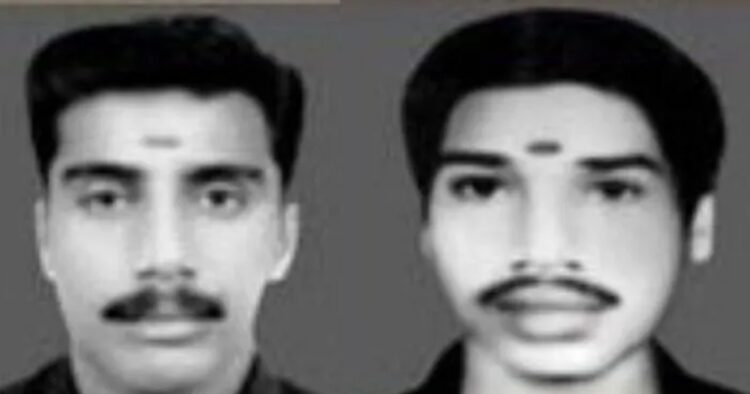The Supreme Court upheld the life sentences of five Communist Party of India (Marxist) members for the murder of two Rashtriya Swayamsevak Sangh (RSS) workers Sujeesh and Sunil in Kerala’s Thalassery in 2002. While rejecting the plea moved by convicts Panniyodan Sivadasan alias Sivatty, Edakandi Ashokan alias Kokkodan Ashokan, Vellora Pradeepan alias Eduppi Pradeepan and Badiyil Reneef, the court said that there was no error in the High Court’s decision to uphold the Trial Court’s judgement awarding life term to the CPIM members.
Another convict Ekandi Dinesan had died during the pendency of the petition challenging the Kerala High Court’s decision to uphold the sentencing of the convicts.. The Supreme Court bench, comprising justices Sudhanshu Dhulia and Prasanna B Varale, observed that there is a need to prevent such crimes.
The bench said, “Crime creates a sense of societal fear, and it affects adversely the societal conscience. It is inequitable and unjust if such a situation is allowed to perpetuate and continue in society. In every civilized society, the purpose of criminal administrative system is to protect individual dignity and to restore societal stability and order and to create faith and cohesion in the society”.
On the midnight of the 1st of March 2002, CPIM workers attacked Sujeesh, Sunil, and others, following several CPIM workers in Melur joined the RSS. The RSS workers were sleeping in a shed near the Melur River. Sujeesh suffered serious injuries in the attack with an axe and a sword and was sent to Thalassery Hospital, where he succumbed. The prosecution told the court that the victims and nine others were attempting to flee a violent mob when the accused launched a lethal attack, killing them all.
In 2006, a trial court convicted 14 CPM members and sentenced them to life in prison for the killings. However, in 2011, the Kerala high court affirmed the conviction of five men, acquitted eight others, and noted the death of one accused Dinesan. The convicts filed a plea in the Supreme Court challenging the High Court’s decision contenting that the alleged contradictions in witness testimonies raise doubt on the involvement of the convicts in the murder.
However, the Supreme Court noted that there were only minor contradictions and that does not undermine the prosecution’s case. “Only because there are some contradictions, which in the opinion of this Court are not even that material, the entire story of the prosecution cannot be discarded as false,” the SC bench said adding that the testimonies of eyewitnesses were “honest, truthful and trustworthy” and that the High Court’s reliance on these testimonies was “well-reasoned”.
Moreover, the court also rejected the argument that the convicts be acquitted due to alleged investigative lapses. The bench said, “On account of defective investigation, the benefit will not inure to the accused persons on that ground alone. It is well within the domain of the courts to consider the rest of the evidence, such as statements of eyewitnesses and medical reports”.

















Comments